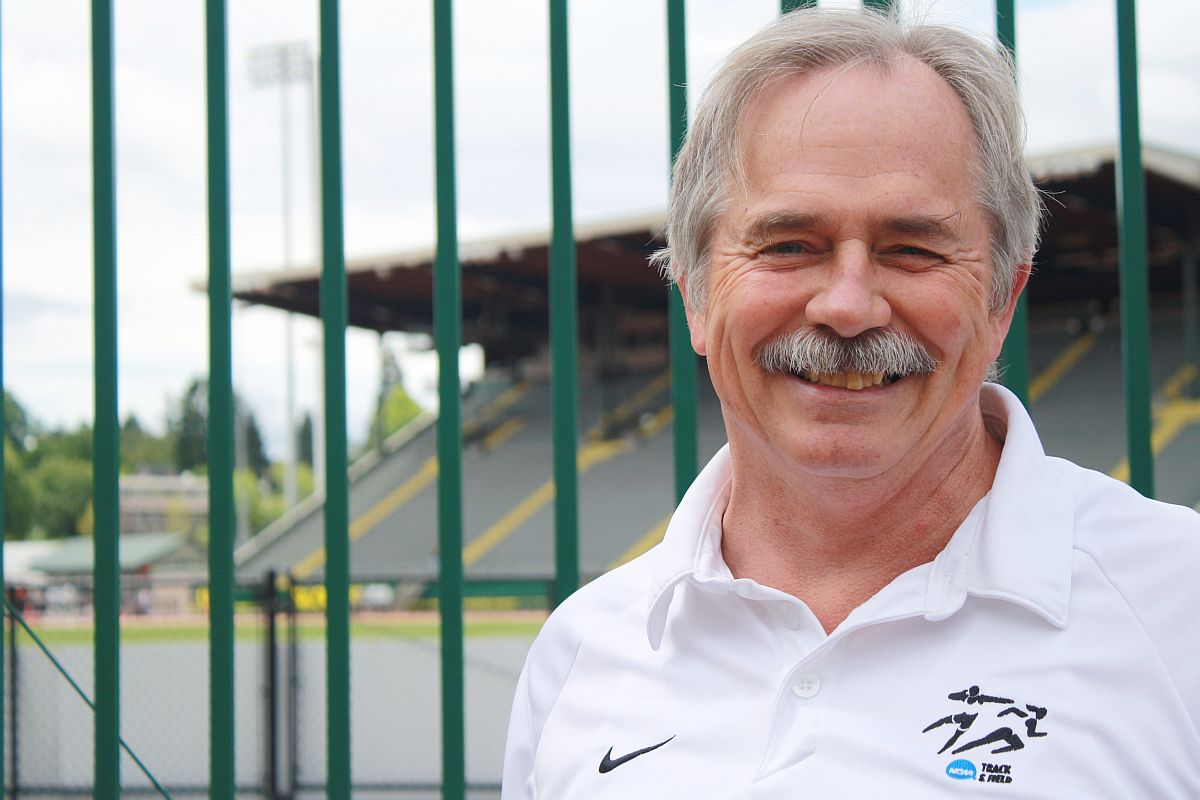Story by Chris Brooklier
Photos by Taylor Woolsey
Hayward Field is arguably the most historic track in the country and has seen the likes of athletes Steve Prefontaine and Usain Bolt. When spectators and athletes gather at Hayward, minds often wander off, imagining Pre circling the track or Usain bolting down the straightaway. Both the agony of defeat and the joy of victory can be found here. Athletes leave everything they have on the track in hopes of being the best. Such was the atmosphere earlier this month at the Oregon State Track and Field Championships, where the absolute fastest teenagers in the state competed. But while the athletes get most of the attention, officials receive little praise despite being the driving force to the event’s success.
All meets are staffed with a crew of four to five officials, the majority of whom are volunteers. Cameras are common, with one at the finish line running at 1,000 frames a second while another above the field provides a bird’s eye view on each event. There are also various officials at the finish line giving hand times and conferring with each other throughout the meet.
One of these volunteers, Gary Rabideau, has been a track official for fifteen years and usually helps out at the finish line. He timed ninety-eight events on the first day of this year’s championships, but was still excited to officiate another day of track and field. A sprinter during high school, Rabideau was an avid runner, doing five to six miles a day, until four years ago. After almost three decades of running, Rabideau had lost all the cartilage in his knee, causing bone to rub on bone every time he attempted running. “I miss running everyday,” he says. “It’s hard to stop doing something you love after twenty-five years.” Rabideau has another job as the manager of a computer software company, but gives up his time to be an official because, he says: “It’s really fun and I love the atmosphere.
“There is nothing like being on the field as an official,” Rabideau adds. “I’ve been in the stands for some meets and it’s just not the same.” Last year, for example, UCLA visited Hayward for a dual meet, and 6,000 to 7,000 spectators came out to support the UO in the Oregon cold. This year, Oregon went down to UCLA’s Drake Track Stadium and there were just 400 to 500 spectators in the Los Angeles sun.
In the last fifteen years, Rabideau has had many special memories with two in particular standing out. The first: three years ago when he worked as an athlete escort at the 2008 Olympic Trials. He spent the event directing athletes to the starting line for their race, including Oregon Track Club members Nick Symmonds, Andrew Wheating, and Christian Smith who swept the 800-meter race. The second memory Rabideau holds dear was when Alan Webb broke the high school 1500-meter record at the 2001 Prefontaine Classic. When asked why these events were special for him, Rabideau responds: “The atmosphere was absolutely incredible. When Oregon swept, the audience was so loud I couldn’t hear myself think.”
Back at this year’s high school state championships, the sun was going down with two events left: the 300-meter low hurdles and the 4×4 relay. With the runners all ready to compete, there was a slight problem: one of the hurdles was crooked. The officials, including Rabideau, could have just ignored the hurdle and the runner would have been at a disadvantage, but they decided to work as a team to fix the problem. After about ten minutes, the hurdle was ready and all of the officials had a good laugh about what had occurred. The group isn’t just a crew at a track meet; they are friends who went out to celebratory pizza after the weekend’s meet.








